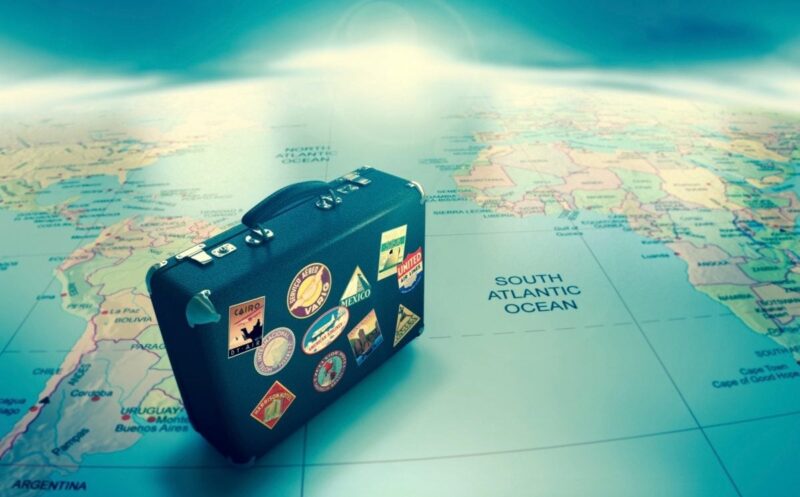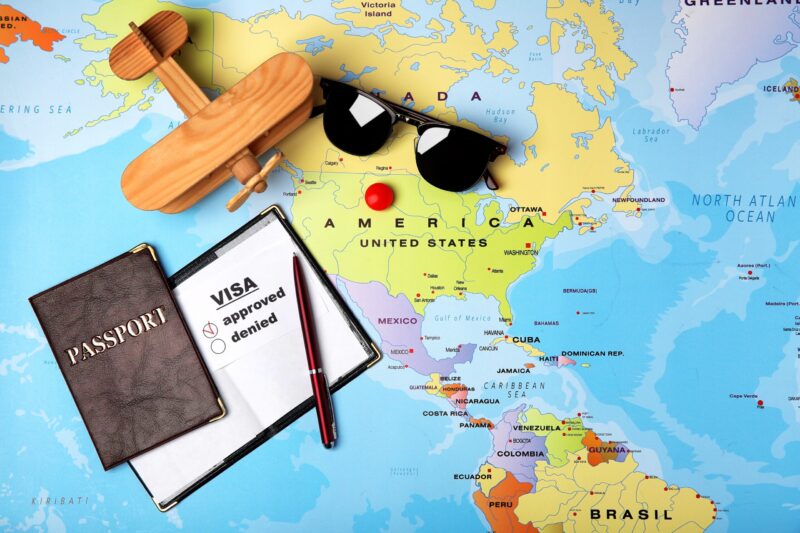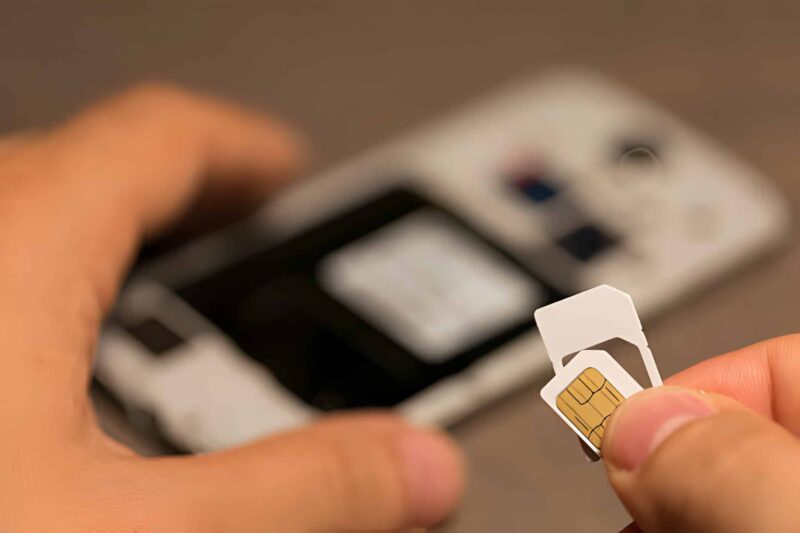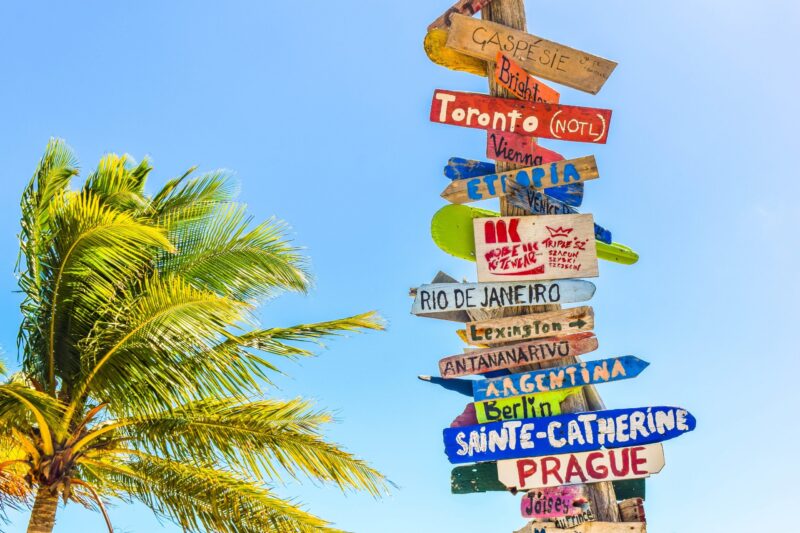Traveling to a new country brings excitement, but also demands smart preparation. Each destination has its own rules, customs, and surprises that can affect your entire trip. A quick passport check or knowing where you can legally smoke might save you major trouble abroad. Use this checklist to avoid surprises and stay ready for anything.
Check Your Documents and Entry Requirements
Do not assume entry will be automatic. Over 60 countries require at least six months of passport validity, even for short visits.
In some places like Chile or Argentina, you may need to pay a reciprocity fee even if a visa is not required.
Always verify if digital forms or QR code registrations are mandatory—Japan, for example, requires online arrival forms before boarding the plane.
Border agents may also ask for hotel confirmations, proof of return tickets, or daily travel budgets.
Learn More About Health and Safety Rules

Healthcare access varies more than most travelers expect. For example, European Union countries may allow EU citizens free or reduced medical care, but charge full price to everyone else.
Many African and South American countries require yellow fever vaccination proof if arriving from affected zones, even if the disease is not present there.
In Singapore, bringing in certain medications like codeine without a special permit can lead to arrest. Always study both medical rules and safety alerts to avoid accidental violations.
Learn Cultural Etiquette and Behavior Expectations
Customs can change everything about your visit. In Japan, silence on public transport is expected. In Italy, arriving late to dinner may be normal, but in Germany it signals disrespect. Public gestures, queue behavior, and eye contact rules shift from country to country. What counts as polite in your hometown may seem rude abroad.
Personal Habits and Local Sensitivities

Walking around barefoot in Thailand, blowing your nose in public in China, or speaking loudly in museums in France could attract negative attention.
Many countries also do not tolerate public displays of affection, and taking photos in markets or temples without permission might spark conflict, something especially important for students who enjoy documenting their travels. In the UAE, eating in public during Ramadan can lead to fines, even for tourists.
Buying Travel-Friendly Items
If you carry personal items like grooming kits or specialty tools, check import restrictions in advance. For travelers who enjoy smoking a pipe, laws vary widely. In some countries, pipe smoking outdoors is legal, but indoor use may fall under general tobacco restrictions.
To stay prepared with proper gear, Pipeonline offers compact and travel-safe pipe kits that comply with many international travel needs. Always pack items with care to avoid delays during airport checks.
Review Currency Systems and Payment Access

Money works differently in every country. Some rely heavily on cash, such as Japan or Egypt, where small restaurants and local vendors might reject credit cards. Others like Sweden or South Korea have shifted toward fully cashless systems. Always check if your card provider charges international fees or blocks foreign transactions by default.
Carry a small amount of local currency before arrival, especially if arriving late at night or in rural areas. ATMs may limit withdrawals or only accept local cards. In Argentina, tourists often receive better exchange rates through authorized Western Union services than official banks. Keep small bills for taxis, tips, and public restrooms, which may charge exact change only.
Check Mobile Networks and Connectivity Options
Your phone may stop working the moment you land. Roaming charges can reach hundreds of dollars in countries with strict telecom policies like the Maldives. In some regions, local SIM cards require passport registration. Countries like India or China may restrict foreign eSIM services, so always check compatibility in advance.
Free Wi-Fi may seem common, but many airports, cafes, and hotels limit access with registration walls or time caps. Consider downloading offline maps and translation apps ahead of time. In some rural parts of Africa or Central Asia, mobile coverage drops entirely outside major towns. Buy a power bank before departure and keep your charger adapter ready for different voltage systems.
Research Transportation Systems and Transit Conditions

Transport access shapes your daily movement in any foreign country. Transit culture differs dramatically between continents and even cities.
Ticketing and Access Cards
Many countries require preloaded transport cards. In London, Oyster cards are mandatory for tube and bus use. Singapore uses EZ-Link, while Hong Kong runs on Octopus. In places like Lisbon or Prague, buying a ticket after boarding may lead to heavy fines.
Unpredictable Traffic and Local Customs
Traffic patterns may be chaotic. In Nairobi or Manila, rush hours often stretch into mid-afternoon. Local drivers may ignore lanes or signals. In cities with scooter culture like Hanoi, crossing the street requires calm and patience.
Ride Apps and Taxis
Uber, Bolt, or Grab may not be legal or available. Germany enforces strict taxi licensing rules, while Cuba relies on classic car taxis with no meters. Always verify official taxi colors and use hotel services or apps to avoid scams.
Review Accommodation Practices and Local Hospitality Rules

Where you stay influences safety, comfort, and legal requirements. Hotel standards vary by country, and so do guest obligations.
Police Registration and Guest Declarations
In Russia or Uzbekistan, hotels must register your stay with local authorities. Skipping this process may lead to fines or delays at departure. In smaller countries like Georgia or Albania, some hosts still fill paper forms or ask to photocopy your passport.
Hidden Costs and Room Features
Expect fewer plug sockets in budget hotels. In Italy or Greece, hot water might run on timers. Many Japanese hotels offer single-occupancy rooms with private toilets smaller than a closet. Read reviews carefully, especially about showers, air conditioning, or noise levels.
Check-In Rules and Deposit Requests
Some hotels require printed booking confirmations. Others demand a cash deposit, even if you paid online. In Mexico, Argentina, or parts of the Balkans, ID checks for every guest are common at check-in. Always clarify refund conditions, as cancellation policies vary by platform and region.
Study Food Culture, Water Access, and Common Allergens

Meals can bring comfort or cause illness depending on how well you prepare. Safe eating practices vary country by country, and not every region handles food regulations the same way.
Water Safety and Ice Use
Tap water safety differs sharply across regions. In countries like Canada, Iceland, or South Korea, tap water is drinkable. In parts of India, Egypt, or Mexico, bottled water is essential even for brushing teeth. Ice cubes may come from tap sources—always ask before adding them to drinks.
Hidden Ingredients and Cross-Contamination
Food labeling laws are not universal. In Japan or China, menus may not list all ingredients. Peanut oil, sesame, or gluten can appear in sauces or stews without notice. Cross-contamination in shared kitchens or street stalls poses high risk to those with serious allergies.
Street Food and Local Etiquette
Street food is popular in places like Thailand, Morocco, or Turkey, but follow the locals. Long lines often signal trusted vendors. Avoid raw foods in tropical climates. Observe how locals eat—eating with hands, sharing plates, or using bread instead of utensils may be common.
Prepare for Communication, Connectivity, and Local SIM Card Rules

Staying in touch requires more than a charger. Different countries have different telecom laws, data speeds, and coverage quality.
Roaming Costs and Phone Compatibility
Roaming can create massive bills. In the Maldives or Switzerland, rates exceed $10 per megabyte on some plans. Phones from North America may not support regional bands used in Asia or the Middle East. Always check your device’s GSM or CDMA compatibility with local networks.
Local SIM Card Restrictions
Buying a SIM card is not always simple. India, Kenya, and Indonesia require passport verification and sometimes photos for activation. In some Gulf countries, tourists receive limited data access or must register SIM cards through hotels or airports.
Wi-Fi Access and Digital Preparation
Wi-Fi is not guaranteed everywhere. In Italy, many cafes ask for ID to log in. In remote regions like Patagonia or Mongolia, there may be no signal for hours. Before departure, download offline tools such as Google Translate, local maps, and currency converters. Power outlets and voltage also vary—carry a universal adapter and surge protector to protect your gear.
Bottom Line
Travel begins long before the flight. Every country brings a unique mix of rules, customs, and expectations that can affect your safety, comfort, and legal standing. Ignoring small details—like smoking zones, visa stamps, or phone compatibility—can lead to delays, fines, or lost opportunities.
Prepare with care, stay curious, and treat local norms with respect. Each item on the checklist guards your time, money, and peace of mind.







